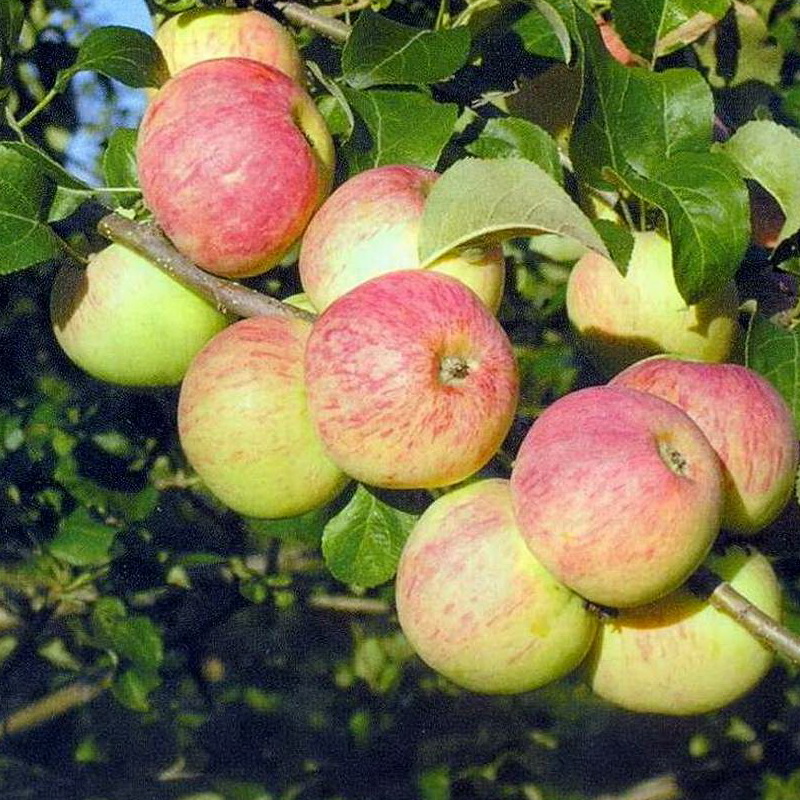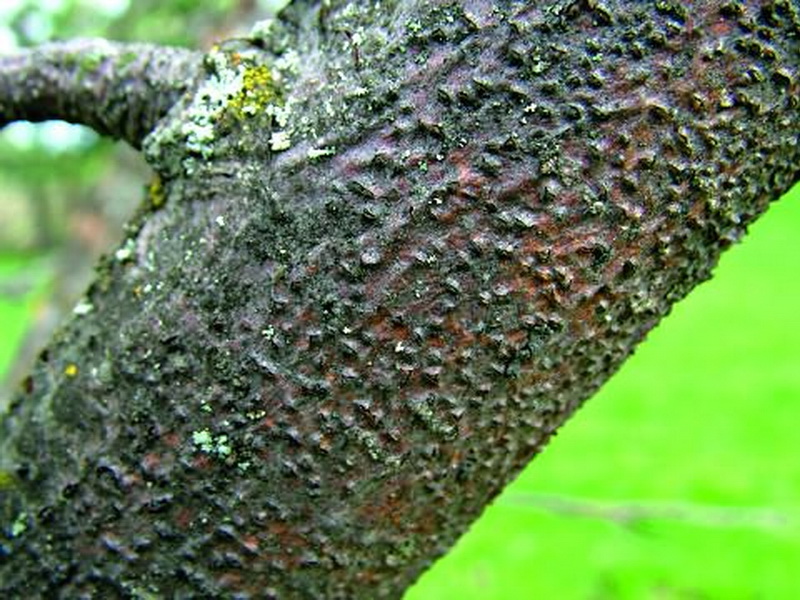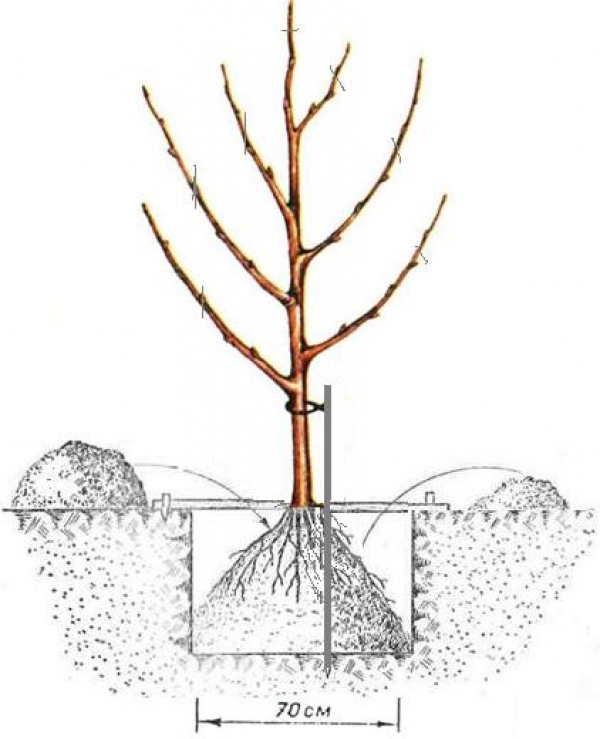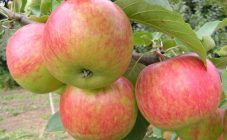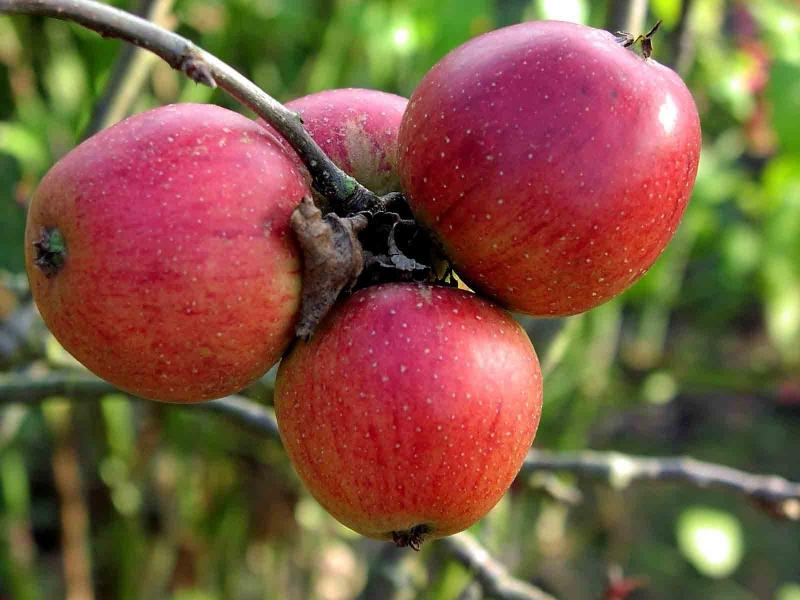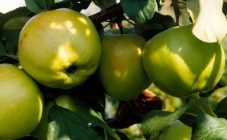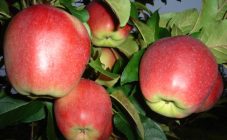Content:
In order to more often enjoy ripe and tasty apples in the northern regions of Russia, the Phoenix Altai variety was bred. It was created at the Research Institute of the Siberian Region for the Altai Territory. But thanks to its frost resistance, it has become popular in other northern regions.
Description of the variety
Phoenix Altai is an apple tree, the description of which should begin with the dimensions of the tree. This fruit crop is characterized as medium-sized. The maximum tree height can reach 8 m. Every year the plant grows up to 7 cm. The apple tree has a spherical crown of medium density. When leaving, preventive pruning is needed. The leaves are boat-shaped, deep green with a matte sheen. When choosing a planting site for the Phoenix apple tree, you should take into account its preferences regarding sunny places and a deep location of groundwater.
Phoenix has a high yield rate. It can reach 50 kg of sweet and sour apples from one tree. The mass of one fruit reaches 100-150 g. The variety is characterized by juiciness, softness and fine-grained apples. Many gardeners rate their taste on a 4-point tasting scale. Each apple contains a large amount of useful vitamins and elements: iodine, iron, fiber, sucrose and other substances.
Apple-tree Phoenix Altai - winter variety. The complete opposite of it is the apple-tree Tsar's thorn filling. This is a summer variety of old folk selection. The trees are not tall, but the crown is quite spreading. The yield is average and constant. The apples are medium in size, weighing less than 100 g. The shape of the fruit resembles a cone. The color varies from greenish to yellow with red blotches. The pulp is loose, sour, but juicy. At full maturity, the fruits acquire a fresh-sweet taste and a specific varietal flavor.
Tsar's thorn belongs to summer varieties, ripening occurs in mid-August. Apples are poorly stored and transported. But with incomplete maturity and careful picking, apples can be transported and stored for no more than 6 weeks. This variety is suitable for the middle lane, has good frost resistance. But its frost resistance is incomparable with the frost resistance of the Altai Phoenix.
Disease resistance
Phoenix Altai is an apple tree characterized by low resistance to diseases spread by fungi. Diseases of scab and powdery mildew are fatal. The reasons may be high humidity and heavy rainfall.
Scab appears as brown spots passing from leaves to fruits. Powdery mildew coats leaves and branches with a white coating. This leads to drying of the affected areas and shedding of the ovary. Spreading occurs from the bottom up.
Various methods are used to fight diseases:
- compliance with the rules of watering, feeding, pruning the crown;
- introduction of ash into the soil;
- timely application of potassium-phosphorus fertilizers;
- spraying with colloidal sulfur;
- among effective chemicals, gardeners distinguish drugs: fast, chorus, hom, phytosporin.
Among pests, apple trees can be attacked by the moth. These moths lay their eggs on leaves, ovaries and fruits. In place of the eggs, worms soon appear, which lead to the death of the plant. To combat emerging pests, insecticides are used, which contain esfenvalerate and karbofos.
Pollination and harvesting
The apple of this variety requires pollinators, as it is a self-fertile variety. Among the best pollinators are the varieties Novost Altai, Gornoaltayskoe, Pepinka Altayskaya.
Harvesting is done throughout the fall from September to November. Dry, calm weather is suitable for this. The fruits should be picked carefully so as not to damage the stalk. Gloves are advisable.
Apples of the Phoenix variety can be stored well for almost 5 months, without losing their taste and without changing the presentation. Before being sent for storage, the fruits must be sorted by size. Store apples in wooden boxes separately from other varieties. The optimum storage temperature is not lower than 0 ° С.
Landing
When choosing a seedling, you should pay attention to its age. Trees take root well at the age of 2 years. They are planted in the spring before the buds open. If the apple tree is older than 2 years, it should be planted in the fall. It is advisable a few weeks before frost, so that it immediately goes into hibernation, and with the onset of heat the next year it wakes up and starts growing with renewed vigor.
Loamy and sandy loam soils are suitable for this variety. A hole is dug 80 cm wide and 70 cm deep. Pour sand, compost and peat into the prepared hole. If planting is carried out in the fall, the soil in the pit is filled with warm water. The apple seedling should be placed with a handle on the south side and sprinkled with earth.
The tricks of gardeners in growing this variety:
- To determine the age of the apple tree, they look at the rings at the points of disconnection of the branches. First, the branches from the trunk are counted, then those that are at the base of the growth. After counting the rings, add one and get the actual age of the tree.
- For planting the Phoenix, they choose places with the largest snowdrifts in the winter.
- In the hot summer period, each tree should be watered once every 3 days. Consumption should be at least 10 liters per apple tree.
- Planting a seedling on the south side of buildings and other trees will help protect the apple tree from frost.
Further care
Water the apple tree carefully so that the moisture goes at least 1 m to the roots. Each spring and autumn period, regular feeding is carried out: humus or special formulations.
Crown formation
Basic rules for crown formation:
- In the first year, the tree is not pruned so as not to damage the root system.
- In the second year of the tree's life, a ball-like crown is formed. You should also remove damaged branches and those that have a curved shape or grow horizontally from the tree.
- In subsequent years, diseased and extra branches are cut off.
- By the fifth year, the formation of the crown is completed. It remains only from time to time to remove diseased non-fruiting branches.
The main secrets of caring for the Phoenix Altai apple tree are simple:
- Regular watering, especially in summer.
- Timely feeding in spring and autumn.
- Disease prevention.
- A careful approach to crown formation.
- Fight against rodent attacks.For this, the trunk is covered with a cloth, dried branches.
Advantages and disadvantages of the variety
Gardeners call the main advantages of choosing this variety:
- High frost resistance. It is able to withstand frosts down to -30 ° С.
- The fruits are juicy and soft.
- No care required.
- The fruits have a long shelf life.
Disadvantages of the variety:
- In very cold winters, the apple tree can freeze slightly.
- The tree is not resistant to scab disease, especially in wet weather.
The Phoenix apple tree is valued by the inhabitants of the northern regions for its royal characteristic: the fruits are large, juicy, can be stored for a long time, the trees tolerate frost well. On the basis of Phoenix Altai, new varieties are annually developed that can withstand various diseases and will have large juicy fruits. Perhaps in the near future, scab and powdery mildew will not be terrible for the subspecies of the variety described above.
